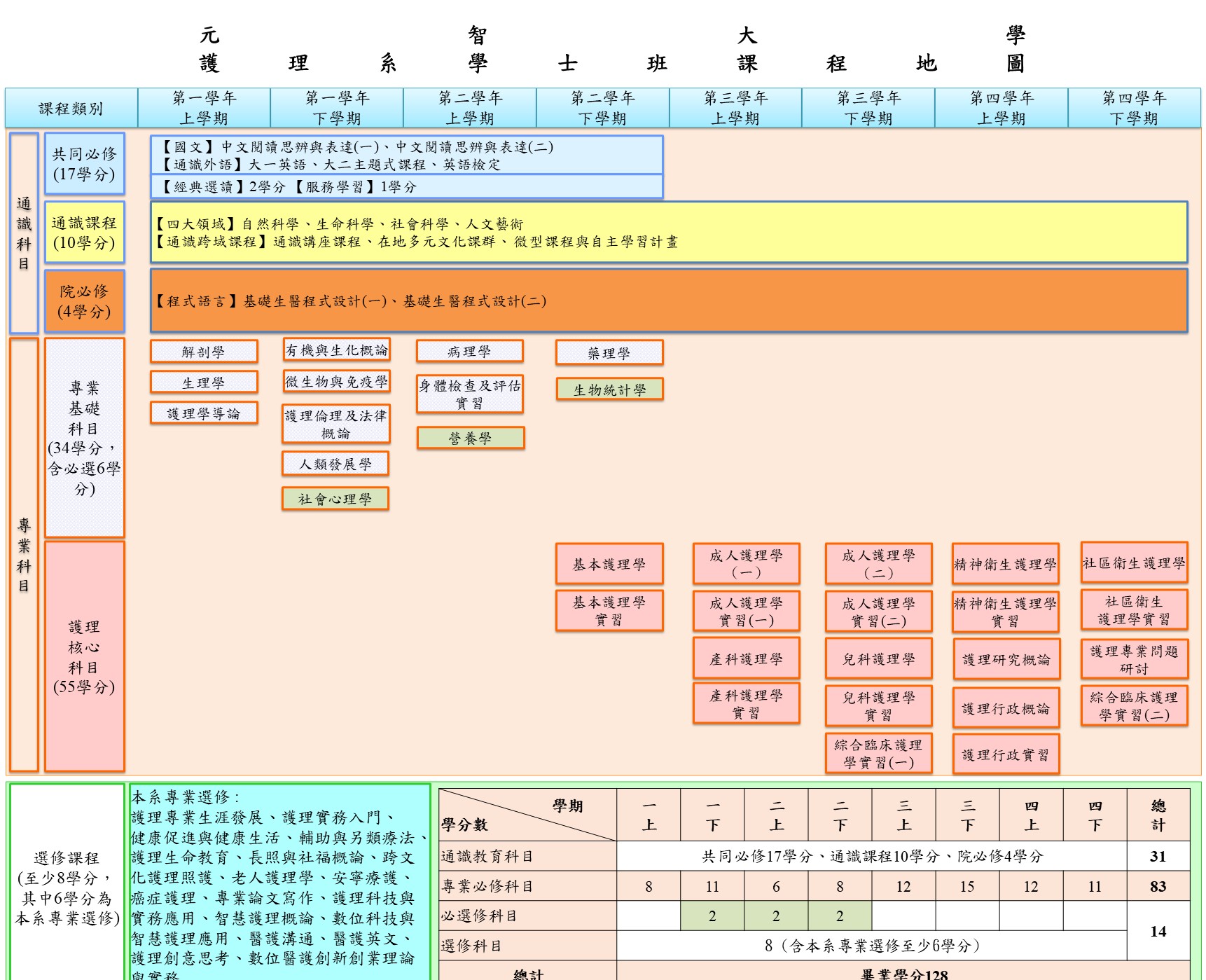
Curriculum Philosophy and Development Goals
To cultivate nursing and healthcare professionals who meet the needs of society, the department aligns with the university’s educational philosophy by strengthening students’ core competencies in professional skills, problem-solving, collaboration and leadership, global perspective, and technological application. The goal is to nurture students with innovative nursing capabilities that reflect both international trends and societal demands.
Courses are designed based on students’ characteristics and available learning resources. Through curriculum innovation and practical application, students not only acquire the eight core competencies traditionally required in nursing education, but also develop skills in nursing innovation and smart healthcare. This enables graduates to demonstrate innovative nursing practices in clinical settings, improve care quality, and expand their career paths.

